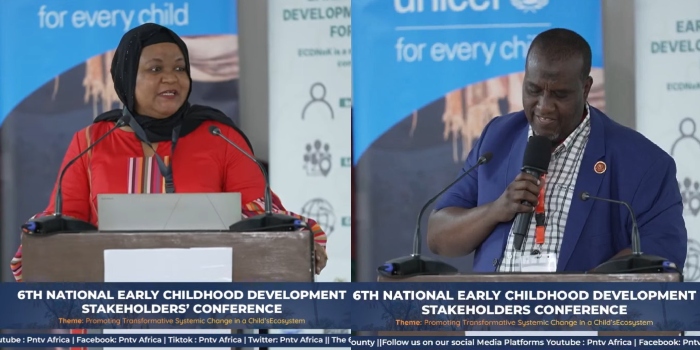Experts attending the 6th National Early Childhood Development (ECD) Stakeholders Conference in Garissa have warned that Kenya’s ECD crisis cannot be solved without urgent investment in families, nutrition, and reliable data systems.
Speaking during the conference, Prof Amina Abubakar, Director of the Institute of Human Development at Aga Khan University, emphasized the need to support young mothers and caregivers.
“One statistic that really stood out is that in many areas, women are becoming mothers before the age of 18. We need to invest in families to be able to provide nurturing care,” Prof Abubakar said.
Prof Abubakar stressed the importance of developing support systems that can equip young mothers with the skills and resources necessary to raise healthy children.
She also underscored the need for a stronger focus on data collection and monitoring to guide ECD investments.
“We need to get data to know what the situation is and where we need to do more. But most importantly, we must track our investment, are we putting in money and getting better outcomes?” she posed.
According to her, leveraging technology would play a key role in creating effective monitoring systems that ensure funds are used efficiently and that programs have a real impact.
Dr. Mohamed, another panellist at the conference, highlighted the need for a multi-ministerial approach in tackling ECD challenges.
He noted that ECD should not be viewed as the sole responsibility of the Ministry of Education but rather as a national priority involving collaboration among multiple ministries.
“It has to be the business of a lot of ministries collaborating to provide individual critical components as required by ECD,” Dr. Mohamed said.
On the issue of child nutrition, Dr. Mohamed presented concerning data showing that in frontier counties under the Frontier Counties Development Council (FCDC), only 9.1% of children receive the required dietary diversity.
He called for a total rethink of how nutrition can be improved for ECD children, advocating for solutions that are locally based, doable, and scalable.
Dr. Mohamed further stressed the fundamental role of water in child health and development.
“Every living thing starts from water. Children’s bodies differ from those of adults because, when you look at the ratio of water to bones and muscles, children have a much higher percentage of water. We must have water to provide good nutrition, hydration, and sanitation,” he said.
The conference had a unified call for action, urging county and national governments, as well as development partners, to prioritize family support, nutrition, and data-driven investment strategies to address Kenya’s growing ECD challenges.

